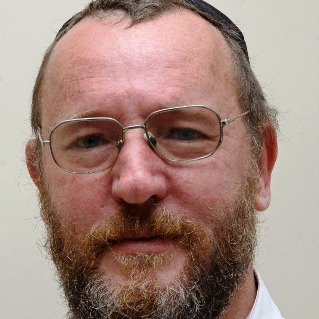
Lifestyle/Community

These gentiles are not so gentle in ‘stealing’ Jewish script!
DAVID SAKS
Somehow, it appears that JKR got hold of a rare manuscript copy of the writings of the famed Litvishe raconteur Faivel Finkelstein, from which she plagiarised shamelessly. Not only the plots, but even the names – and indeed at least two book titles – were thinly disguised versions of what Reb Faivel had come up with a century before.
To cite just a few examples: Ron Weasley, Albus Dumbledore, Hermione Grainger, Voldemort, Harry Potter himself and indeed, even the witching and wizardry school, Hogwarts, have their obvious counterparts in the latter’s now unjustly forgotten works.
Nonsense, you say? Well consider this: Faivel Finkelstein’s stories centre on a certain yeshiva student named Heschie Porter and his two close side-kicks Irma Yonnie Groeniger and Ran Weiss-Eli.
The official name of their yeshiva is the Wkrczr Beth Medrash, but on account of the drashas on the Yamim Tovim for which it is renowned, it is informally known as “Chag Vorts”. Its rosh Yeshiva is the eminent posek Hagaon Harav Elifaz Trumpeldor.
The mashgiach is the saturnine Shabsi Schnapps, about whose true nature we are skillfully kept in the dark until late in the series.
Sound familiar, so far? Let’s continue…
Boasting rare Kabbalistic gifts, Heschie must protect his friends, and the yeshiva, from the dastardly Mort Wolder, a yeshiva bocher who has gone badly off the derech, and seeks to wreak as much mischief as he can.
In the first book of the series, Heschie thwarts a plot to smuggle treif pastries into the yeshiva kitchen ((Heschie Porter and the Half-baked Blintz).
The book was an immediate hit, especially with kosher caterers and desperately bored wagon drivers (although many yeshivot prohibited it as an unwanted distraction. Despite the ban, contraband copies found themselves pasted into the backs of many a Gemara).
Next, Heschie must come to the aid of a professional scribe (sofer), one who specialises in reproducing the works of the great Jewish philosopher-commentator of the post-Maccabean era, Philo. Spitefully, Mort Wolder contrives to spill ink on his manuscripts, and it is up to Heschie to find a way to remedy the situation (Heschie Porter and the Philo Sofer’s Stain).
The later Heschie books have a darker tone. In the final instalment of what unfortunately proved to be a truncated series, an increasingly vindictive Wolder rounds up all those local baalei battim who have failed the audition for the shul choir, and has them sing menucha v’simcha and other popular ditties outside the yeshiva gates at all hours (Heschie Porter and the Deadly Hallels).
Does Heschie go on to obtain smicha and become the Godal Hador? Does the appalling Mort Wolder do teshuva? Sadly, we will never know. Returning from work one day, Reb Finkelstein took a short-cut through a yellow wood. Two roads diverged, he took the path less trodden by and was eaten by a bear. As for his works, they quickly fell into obscurity, and a century after his death appeared to have been forgotten altogether – that is, until a certain Scottish shiksa on the make came into the picture.
I have on previous occasions in these pages lamented how the reputations of many supposedly brilliant gentile writers rest on what they have been able to plagiarise from their more talented Jewish contemporaries. Everyone knows the famous opening line of Hamlet’s great soliloquy, but how many are aware that it is based on the musings of one of Willie Shaknovis’ characters, who is vacillating over whether or not to marry his childhood sweetheart (“Taube or not Taube?”).
As for “Shakespeare”, those who claim that his works were really written by Francis Bacon are right. To cover his tracks, Bacon changed his name to something that sounded less obviously un-Jewish. What a chazzer!
There are other depressing examples of literary theft. Even today, it is virtually unknown that the character Huckleberry Finn was not invented by Mark Twain, but was closely modelled on Chaikl Ari Fine, a crayfish fisherman in the Volga area. Nor was the character Harry Flashman of Rugby School the creation of Thomas Hughes; he was shamelessly plagiarised from Velvel Blobstein’s wayward kollelnik Hirschie Fleischman.
Tangentially, it is worth noting that the works of Gilbert and Sullivan are translations from the Yiddish operettas of Goldblatt and Solomon, both of whom had to change their names to makes headway in the anti-Semitic milieu of Victorian England. Karl Dickstein likewise had to change his name for the English edition of his popular novel Dovid Kuperfeld.
Shocking as these revelations are, though, it is doubtful whether anyone will really believe them. No doubt, with Adar just around the corner, they’ll dismiss it as just another Purimspiel.




